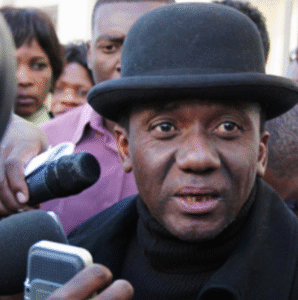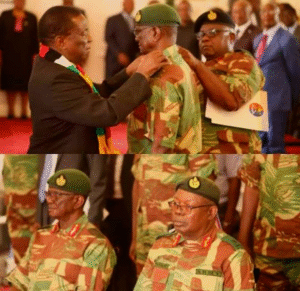MANIPULATING DEMOCRACY: ZEC ACCUSED OF FURTIVE VOTER INFLATION AFTER REGISTRATION DEADLINE


In recent events of mounting concern, the Zimbabwe Electoral Commission (ZEC) stands accused of an alarming breach of democratic conduct. Allegations are surfacing that ZEC has been engaging in dubious practices of adding voters to the electoral roll even after the official deadline for voter registration. This unsettling news has sparked outrage among citizens and political commentators alike, fuelling tension as Zimbabwe grapples with its political realities.
As per the Zimbabwean constitution, the voter registration process should cease on the official date of closure, a rule that serves as a cornerstone of democratic process. Nevertheless, reports suggest that ZEC has allegedly violated this constitutional mandate. Accusations are swirling that the electoral body has been surreptitiously augmenting voter numbers post the registration deadline, a move perceived as a gross violation of electoral integrity.
A notable increase in voter figures on the ZEC website following the closure of the registration window is the crux of these allegations. According to critics, these additional voters have ostensibly appeared overnight, raising questions about their authenticity and legality. Such actions, if true, not only undermine the credibility of the impending elections but also tarnish the democratic principles that the ZEC is constitutionally obligated to uphold.
Given the past controversies surrounding the legitimacy of Zimbabwean elections, these allegations have further amplified citizens’ apprehensions about the electoral process. For a country where the electorate is already disillusioned by allegations of vote-rigging and electoral fraud, these recent developments can significantly intensify the climate of distrust.
Moreover, it’s not only the alleged numbers game that has sparked consternation. There’s rising concern that the so-called “extra” voters may have been strategically added to sway the election in favour of certain candidates or parties. Critics argue that these manoeuvres are a blatant attempt to manipulate the outcome of the elections, amounting to a devastating blow to the democratic process.
However, it is critical to remember that these allegations remain just that: allegations. Without concrete evidence and independent verification, they run the risk of simply fuelling unproductive, divisive rhetoric. Therefore, it’s crucial for relevant local and international stakeholders to intervene.
Independent election observers, human rights organisations, and constitutional law experts should be given unfettered access to review and audit the voter register. Transparency and accountability should be the cornerstones of this process. Ensuring an independent audit would go a long way in restoring the public’s faith in the electoral process and ensuring the upcoming elections are free, fair, and credible.
In addition, the onus is on ZEC to clarify these allegations promptly and decisively. The electoral body should come forward and provide definitive proof to dispel these allegations. An open, transparent approach will not only refute claims of misconduct but also enhance ZEC’s credibility.
The saga of the ‘phantom voters’ serves as a potent reminder of the importance of a fair and transparent electoral process. Democracy is about the collective will of the people, not about numbers conjured in the shadows. As Zimbabwe navigates its complex political landscape, it is more crucial than ever to uphold and respect the sacrosanct tenets of democratic practice.
Democracy, by its very definition, is “rule by the people”. In a nation where its people’s voices are allegedly being manipulated and muffled, the crucial question arises: who really rules in Zimbabwe?




